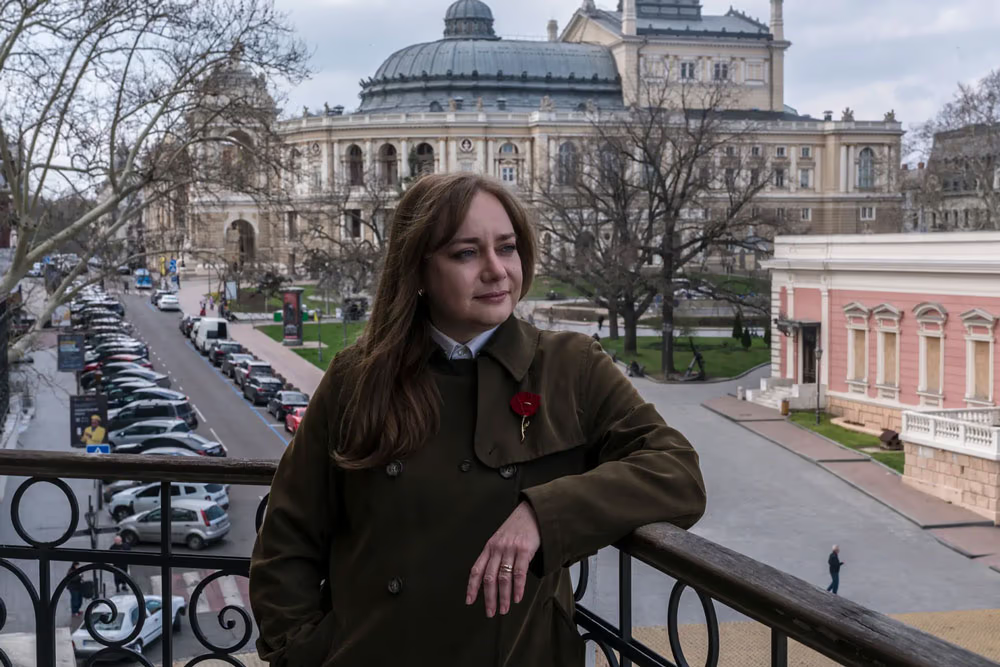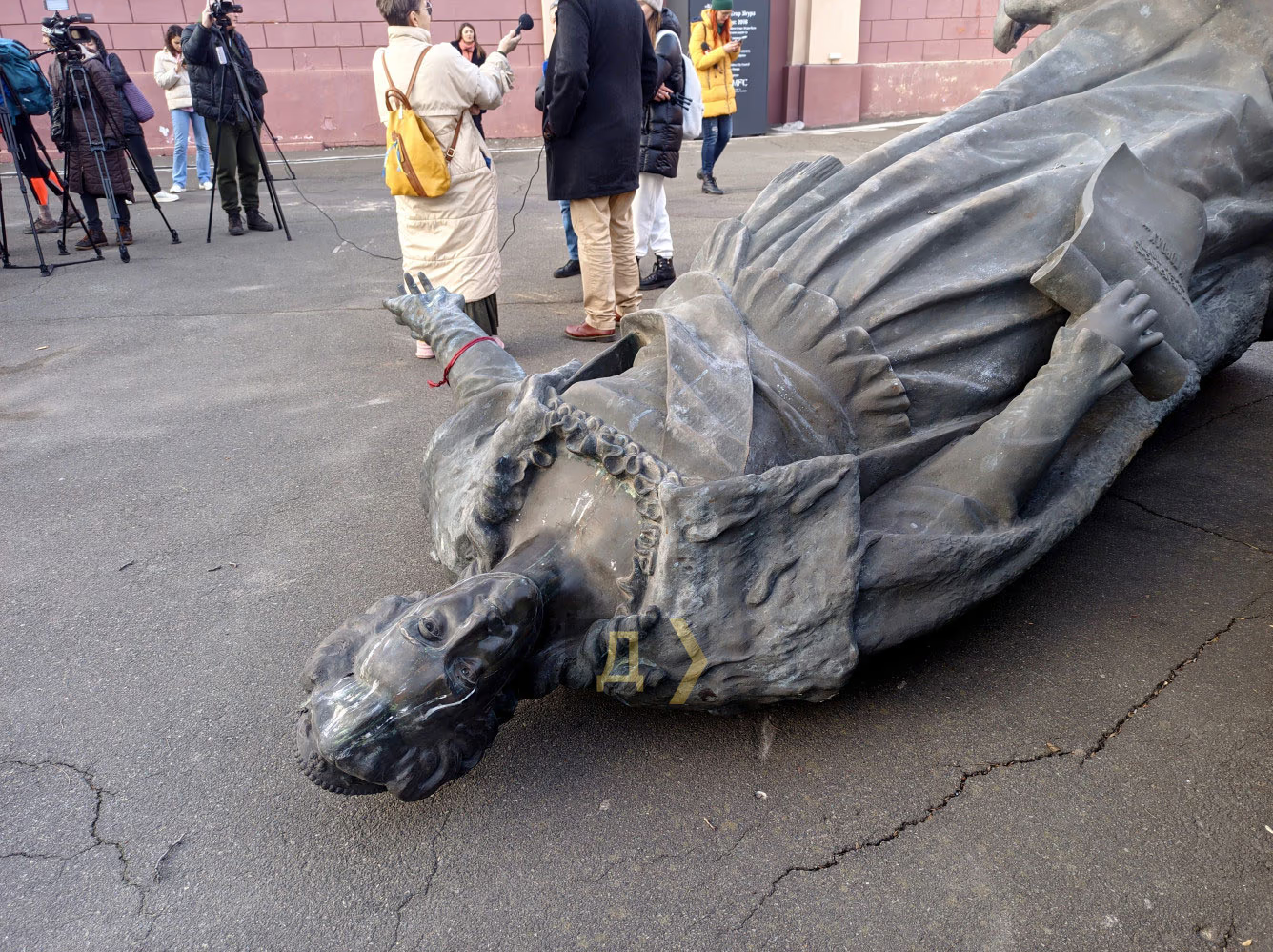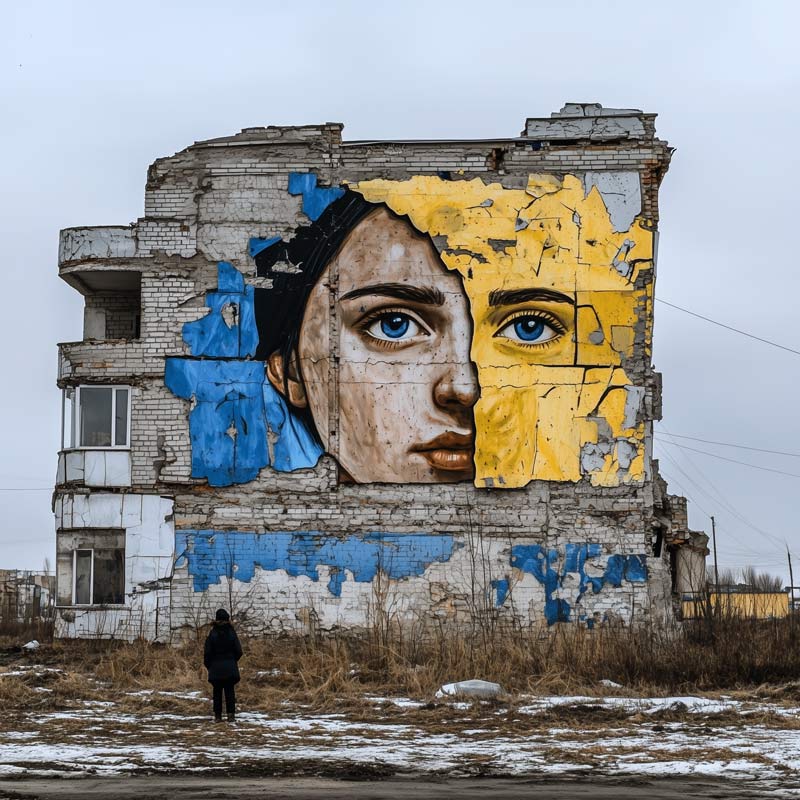The war has compelled Ukraine not only to defend itself but also to rethink its very identity. The decolonization law, passed amid the Russian invasion, has become a tool for dismantling symbols of imperial and Soviet heritage. But the further this process goes, the more its paradox becomes evident: in liberating itself from the legacy of its colonizers, the Ukrainian state increasingly relies on methods it seeks to leave behind.
Odesa—with its multiethnic history and predominantly Russian-speaking population—has become a focal point in this struggle, not just over monuments, but over the essence of Ukrainian identity.
SFG Media has previously reported on how internal contradictions and imposed dividing lines have become political tools—from the collapse of the Ukrainian People’s Republic in 1919 to today’s conflicts over language and culture. Now the question is different: can Ukraine forge a new identity without resorting to old repressive approaches? And who gets to decide what deserves to be forgotten?
The writer Isaac Babel sits in bronze on a street in Odesa, gazing pensively into the distance. His monument may soon be dismantled—as a symbol of "imperial influence" targeted for removal under Ukraine’s decolonization law. But in his native Odesa, the decision has sparked concern rather than applause. Local residents, who have endured hundreds of nights under bombardment, now face a new threat: the erasure of cultural memory. The Ukrainian government is fighting the legacy of the Soviet Union, but increasingly employs the same instruments once used by the empire itself—centralized directives, administrative oblivion, and ideological cleansing of monuments. In this battle, Odesa becomes a test—not just for national identity, but for the very idea of freedom that decolonization claims to defend.
The bronze Babel—with a pen in his hand and a stack of papers at his feet—has long been a fixture of the cityscape. He stands in the heart of Odesa, a few blocks from the port cranes, at the crossroads of tourist trails and taxi routes. Now the monument is under threat. The decolonization law passed by Ukraine’s parliament in the spring of 2023 mandates the removal of "symbols of Russian imperial policy." Writers who served in the Red Army or were published in the Soviet Union have also come under suspicion. That alone is enough to place Babel on the list.

But in Odesa, where he was born and where his famous "Odesa Stories" are set, Babel is not seen as a mouthpiece of empire. He is revered as one of the few writers who immortalized the city’s Jewish and criminal underworld of the early 20th century—a city of smugglers, poets, and pogroms, where cultures and languages collided.
"You can't remove Babel," says Antonina Poletti, a sixth-generation Odesan and editor-in-chief of the Odesa Journal. "Remove him, and you erase the soul of the city."
Although most residents firmly condemn Russian aggression, many fear that under the banner of decolonization, what is being erased is not just a hostile past but the cultural complexity of Odesa itself. The city lives under constant threat of missile strikes—yet today it is also a battleground for a different kind of struggle: between state-led reinterpretation and local memory.

Antonina Poletti.

Artem Kartashov.
And this conflict is hardly unique. Odesa—Russian-speaking and multiethnic—is becoming a symbolic frontline in the battle over what Ukrainian identity should become: rigid and exclusionary, or open and multilayered.
"Odesa is a test," says lawyer Artem Kartashov, one of the regional coordinators overseeing the implementation of the law. "It’s a test of how we confront Russian influence today—and how we plan to confront it in the future."
The decolonization law marks yet another stage in Ukraine’s long-running effort to redraw its post-Soviet cultural map. Over the past decade, the country has banned Soviet symbols, dismantled hundreds of Lenin statues, and enshrined Ukrainian as the mandatory language of public life. In the spring of 2023, the campaign expanded: no longer limited to political figures, it began targeting cultural icons as well.
One of them is Alexander Pushkin. Once exiled by the empire, he was later elevated to a symbol of its greatness during the Soviet era, when Stalin turned him into a safe, universal icon of "great Russian culture." Monuments to Pushkin were erected across Ukraine—and even today, his portraits can be seen on the streets of war-torn Mariupol, posted by Russian troops.
But in Odesa, Pushkin is seen differently. Here, he is not a propagandist but a poet in exile who spent a year in the city and began work on "Eugene Onegin" during his stay. His bust, installed in 1889 with funds raised by local residents, still stands on the waterfront. For many, it is not a political symbol but part of the city’s fabric.

Monument to Alexander Pushkin in central Odesa, whose removal was previously approved by the city council.
"What do great figures and writers have to do with it?" asks Iryna Radian, a 57-year-old French teacher, standing by the Pushkin monument. "We need a much more nuanced approach."
Next to the bust of Pushkin stands the Potemkin Stairs—192 granite steps descending to the seaport. Built in the 19th century as a statement of imperial Russian ambition, the staircase later became the stage for one of Soviet cinema’s most iconic scenes: the uprising in Sergei Eisenstein’s *Battleship Potemkin*. In Odesa, such symbols are not viewed as pedestals of power, but as fragments of a layered, complex past.
"Whether we like it or not, Odesa’s history is closely intertwined with the empire and the Soviet Union," says Ivan Liptuga, head of the city’s Department of Culture. "These facts cannot be erased, ignored, or rewritten." According to him, the city has already fulfilled a substantial portion of the law’s requirements—renaming 230 streets, including those named after Soviet generals or Catherine the Great. "That’s nearly a tenth of all streets in the city," he adds wryly. "Taxi drivers are still getting lost."

The toppled statue of Catherine the Great in Odesa. December 2022.
Nevertheless, the regional administration—answerable to the president’s office—deemed the city’s efforts insufficient. An additional 83 streets were renamed, and an order was issued to dismantle around twenty monuments, including those dedicated to writers who worked in the Russian language. For many, it signaled a shift: the central government’s cultural policy was increasingly detached from local context.
Artem Kartashov, one of the architects of the law, insists that the prominence of figures like Babel is no accident. In his view, it stems from years of Russian policy aimed at entrenching cultural dominance in Ukraine. He claims that Babel had ties to Soviet security services and publicly endorsed collectivization—something he says “caused enormous harm to the Ukrainian state.”
Gregory Freidin, a Stanford University professor and leading expert on Babel’s work, disagrees. He points out that Babel, on the contrary, criticized collectivization, and that alleged ties to the NKVD remain unproven. In 1940, Babel was executed on fabricated charges by Stalin’s regime—the very regime Ukraine now seeks to dismantle.
Opponents of the removals have appealed to UNESCO, arguing that some of the monuments targeted under the law are under international protection. A decision by the organization is expected in the summer. Yet even if UNESCO sides with the people of Odesa, it remains unclear whether it will influence the central government’s course.
In the meantime, monuments continue to disappear. Street signs bearing Pushkin’s name are being replaced with references to pre-imperial history or the names of fallen soldiers. For some, this is an act of justice; for others, it feels like the erasure of an entire layer of life.
"Ukrainian identity is civic, not ethnic," emphasizes Antonina Poletti. "If we impose a singular ethnic model, it will lead to social fragmentation. We risk repeating not only the mistakes of the USSR, but also its treatment of culture as a tool of power. That future frightens me."
At Home

The Institution of Personal Loyalty
A Politico article explains how Andriy Yermak became Zelenskyy’s indispensable envoy—and the center of power in Ukrainian politics

Where Did the Billions for Fortifications Go?
BIHUS Info Exposes Price Inflation and Phantom Contracts in Ukraine’s Defense Construction Program

Ukraine's Disunity
Society must realize that only consolidation gives a chance for the future

No Security Guarantees, but Access to Resources
The U.S.-Ukraine Minerals Deal Turns Support Into a Transaction—Both Sides Are Betting on Long-Term Gains

What Some Would Call Propaganda
The Economist Raises Concerns About Authoritarian Drift in Ukraine

